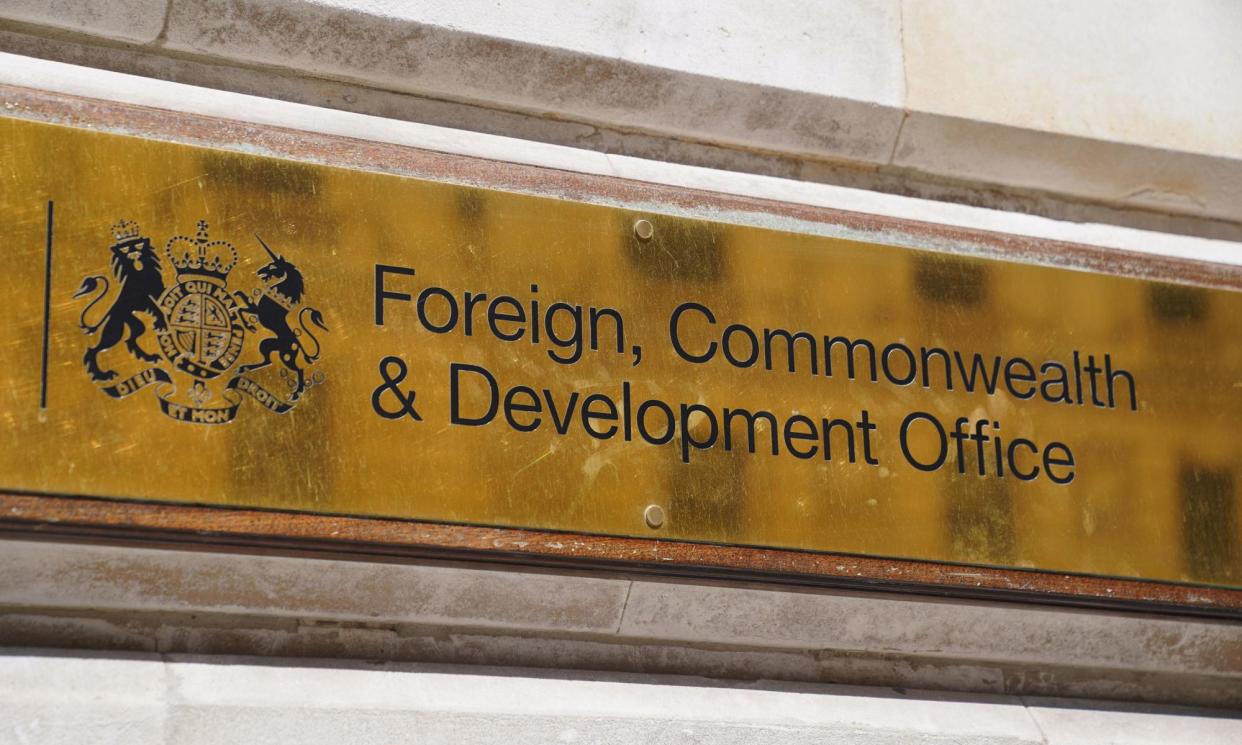UK’s arms export procedures give Israel benefit of the doubt

Decisions on whether to suspend UK arms export licences are largely the preserve of a very small group of cabinet ministers advised by lawyers from the Foreign Office. The role of parliament, which used to have a specialist select committee overseeing arms exports, has been downgraded.
Ministers like to give the impression that any decision is a considered examination of the evidence judged against the clear criteria that “the government will not grant a licence if it determines there is a clear risk that the items might be used to commit or facilitate a serious violation of international humanitarian law”.
Ministers say this judgment is kept under review, with specific arms exports licences sometimes escalated to a higher level review. Broadly, the Foreign Office then provides advice to the business secretary, who is the ultimate decision-maker.
In terms of international humanitarian law, the key relevant criteria are whether Israel is acting proportionately, seeks a distinction between civilian and military targets, and its actions do not create unnecessary suffering.
Those criteria apply not only to the Israeli military offensive, but also to an obligation that the Foreign Office accepts exists for Israel as the occupying power to supply humanitarian aid. Israel says it does not have an obligation as a state to supply aid, but to allow others to do so.
Prising open the reality of what happens inside the Foreign Office – including the degree to which political criteria play a role – is hard. Ministers as a matter of precedent insist the legal advice itself should not be published, even though the Labour party has formally requested it be made available.
The Global Legal Action Network is taking the government to court for judicial review, and already has unearthed more detail of how decisions have been made so far.
It found an International Humanitarian Law Compliance Assessment Process Cell had been established based in the FCDO’s Middle East and North Africa Directorate. It was looking at 56 extant and pending licences. Five Amnesty International claims about airstrikes highlighted in a report about incidents on 20 October were examined by the Ministry of Defence.
The MoD said it could not know about Israel’s intentions in these incidents, leading the FCDO to conclude: “Without accurate information on real-time IDF decision-making and operational planning, we have been unable to make a case-by-case assessment on Israel’s compliance with international human rights law (IHL) for specific strikes or ground operations during the current conflict in Gaza. Despite the lack of specific information, the volume of strikes, total death toll, as well as proportion of those who are children raise serious concerns”.
The FCDO concluded policy risks existed in giving Israel the all-clear, and so it was agreed the Foreign Office would write to the Israeli embassy about nine concerns. The embassy wrote back on 26 November saying it could not give any response on specific incidents, but gave generalised assurances on its commitment to IHL.
On this basis the FCDO concluded: “It was now assessed that it was possible that Israel’s actions in relation to some aspects of the provision of/access to humanitarian relief were a breach of IHL, but that it was unlikely that Israel had breached the prohibition on collective punishment or that the evacuation order was a breach of IHL. There was no evidence that Israel’s military operations were intended to cause starvation, but there was insufficient information about the military objectives of the siege to determine whether or not is was a possible breach of IHL”
In somewhat contorted language on 8 December, the Export Control Joint Unit (ECJU) wrote to the UK foreign secretary, David Cameron, advising Israel’s record of compliance “does not reveal a pattern suggestive of unaddressed underlying systemic weakness which might undermine other material pointing towards an ability and willingness to comply with IHL”.
Cameron then recommended to the business secretary no serious risk of IHL breach existed.
Three things are striking from these court disclosures.
First, how finely balanced the judgment was inside the Foreign Office in mid-December. Since then, many thousands more Palestinians, aid workers and reporters have been killed. Starvation is admitted to exist by ministers.
Second, the FCDO procedures give Israel the benefit of the doubt. So long as Israel’s view of the value of a military target in any given strike is not known, no assessment of a specific strike can be made. GLAN argues this creates a presumption in favour of Israel and an incentive for Israel not to supply information. The UK government is, in this sense, rigging the game so that it can never be forced to admit there have been violations. It is truly a case of hear no evil, see no evil.
Third, the Foreign Office also assessed: “There was no evidence that Israel’s military operations were intended to cause starvation,” a formulation Andrew Mitchell repeated last month. Yet the Israeli government has repeatedly refused British government requests to open more crossings and help aid workers subsequently, so much so that a pattern amounting to intent arguably exists.
If the judgment was so balanced in mid-December, it is hard to believe it is more favourable nearly four months later.
Guardian Newsroom: The unfolding crisis in the Middle East
On Tuesday 30 April, 7-8.15pm GMT, join Devika Bhat, Peter Beaumont, Emma Graham-Harrison and Ghaith Abdul-Ahad as they discuss the fast-developing crisis in the Middle East. Book tickets here or at theguardian.live


